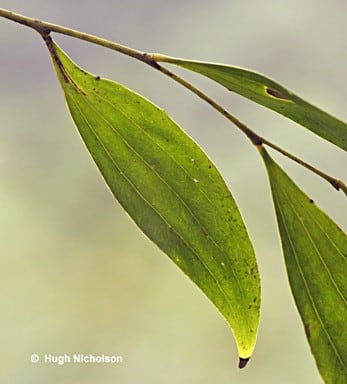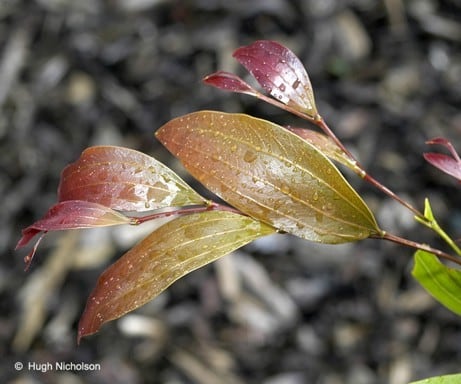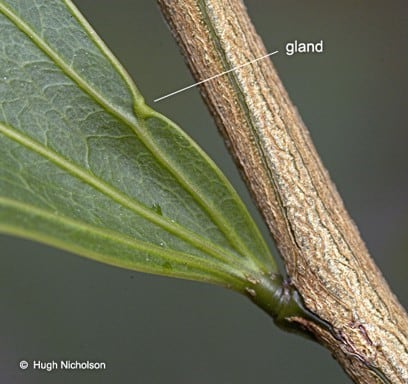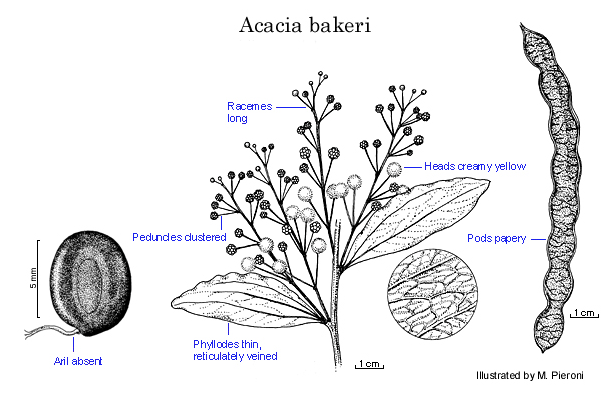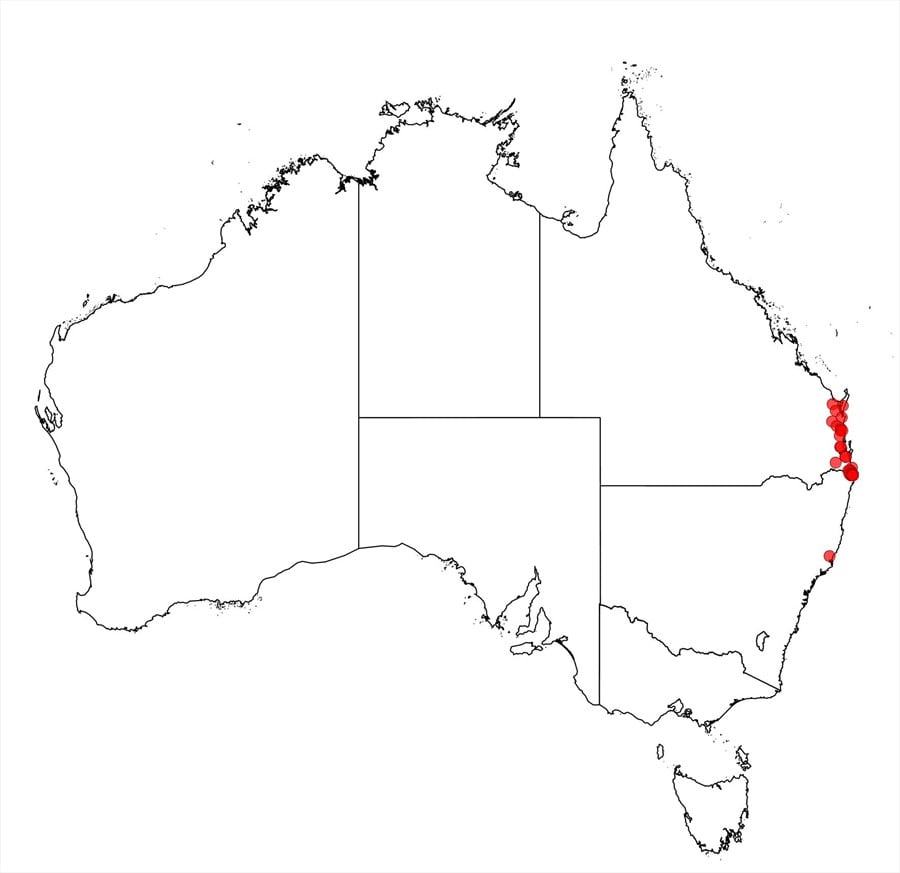Acacia bakeri Maiden
WATTLE
Acacias of Australia
Common Name
Baker's Wattle, Marblewood, Scrub Wattle, White Marblewood, White Wattle.
Family
Fabaceae
Distribution
Extends from the Brunswick R., N.S.W., to near the Burrum R. in the Maryborough district, Qld. Because of extensive clearing of rainforests the species is possibly in danger of extinction, fide L.Pedley, Austrobaileya 1: 219 (1978).
Description
Tree to 40 m high, to 0.9 m d.b.h. Bark grey-brown. Branchlets glabrous. Phyllodes narrowly elliptic to lanceolate-elliptic, 5–12 cm long, (1.5–) 2–4 (–8) cm wide, larger on sterile shoots, with slightly undulate margin, thinly coriaceous, glabrous, prominently (2–) 3 (–4) nerved per face, with minor nerves forming a distinct reticulum; gland 5–10 mm above pulvinus, sometimes with a connective nerve to the base. Inflorescences racemose; raceme axes 3–6 (–12) cm long, glabrous; peduncles in clusters of 2–4, 5–10 mm long, glabrous; heads globular, 10–20-flowered, pale yellow to cream. Flowers 4-merous; sepals free. Legumes shallowly constricted between seeds, flat, to 20 cm long, 10–16 mm wide, chartaceous, glabrous, reticulate. Seeds longitudinal, oblong to broadly elliptic, flattened, 6–10 mm long, subshiny, dark brown, exarillate.
Habitat
Occurs in lowland subtropical rainforest and rainforest margins, in volcanic and alluvial soil.
Specimens
Qld: roadside between Buderim and Forest Glenn, J.Moriarty 323 (PERTH). N.S.W.: Brunswick R., near Brunswick Heads, J.O’Hara & R.Coveny 3482 (NSW, PERTH).
Notes
Unusual in that seeds may begin to germinate before pods fall from the trees, fide B.A.Lebler, Wildfl. SE Queensland 2: 67 (1981).
Affinities uncertain but possibly with some relationships to A. binervata and/or the group of species around A. rothii.
This is probably the largest species of Acacia in Australia. At the time of its discovery, it was recorded as reaching about 50 m in height, but it now rarely exceeds 8 m, fide B.A.Lebler, Wildfl. SE Queensland 2: 67 (1981). Its timber is yellowish, hard and close-grained and is suitable for flooring, cabinet work, scantling cases and tool handles.
FOA Reference
Data derived from Flora of Australia Volumes 11A (2001), 11B (2001) and 12 (1998), products of ABRS, ©Commonwealth of Australia
Author
Minor edits by B.R.Maslin & J.Rogers
B.R.Maslin
This identification key and fact sheets are available as a mobile application:
URL: https://apps.lucidcentral.org/wattle/
© Copyright 2018. All rights reserved.
